
Müştemilat (annex) in Turkish real estate – explained simply

Müştemilat (pronounced moosh-teh-mee-laht) is a Turkish legal term referring to annexes or auxiliary structures attached to a main property. These are secondary buildings or areas that serve the primary residence but are not considered independent properties.
Under Turkish property law, müştemilat includes structures like:
- Garages or carports
- Storage sheds or warehouses
- Guest houses (if not self-contained)
- Pools, greenhouses, or workshops
- Private gardens or courtyards (if enclosed)
These annexes are registered under the same title deed (Tapu) as the main property and cannot be sold or transferred separately. Their legal status is tied to the primary property, meaning ownership changes apply to both.
In real estate transactions, müştemilat must be explicitly listed in the title deed to avoid disputes. Omitting them may lead to legal complications, as they are considered part of the property’s total value and usable area.
| Turkish Term | English Equivalent | Notes |
|---|---|---|
| Müştemilat | Annex | Legal term for attached secondary structures. |
| Ek bina | Additional building | Colloquial term, less formal than müştemilat. |
| Yardan faydalanma alanı | Auxiliary usage area | Used in zoning regulations; broader than müştemilat. |
| Bağlı yapı | Dependent structure | Emphasizes the annex’s reliance on the main property. |
For official definitions, refer to the Turkish General Directorate of Land Registry and Cadastre (TKGM).
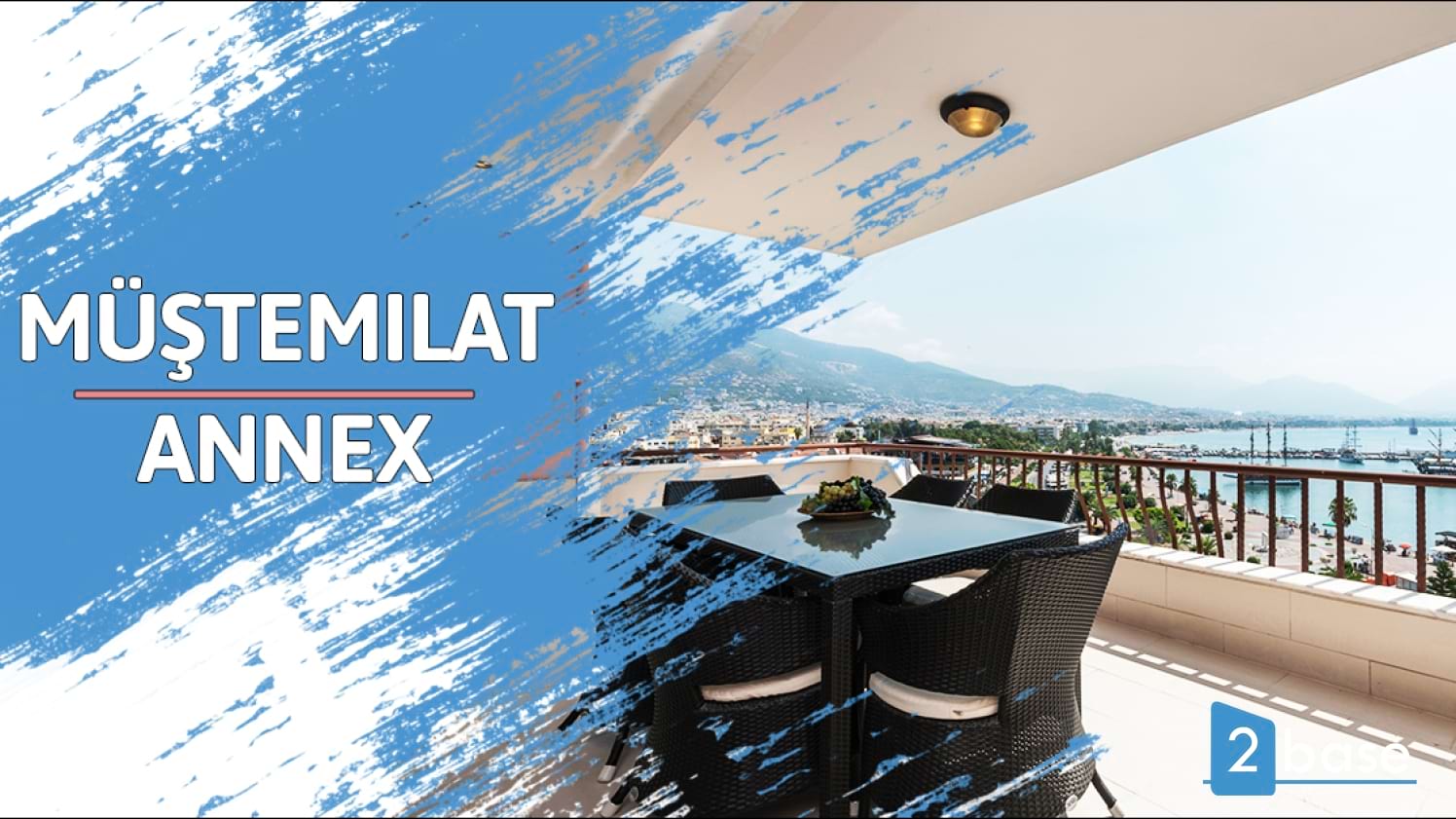
Listed under ‘müştemilat’ in the deed’s details.
In the Turkish title deed (*tapu*), *müştemilat* is explicitly mentioned in the ‘property description’ section. It includes the type (e.g., garage, pool house) and sometimes the size or construction details.
The deed does not always specify exact measurements, but it confirms the annex is legally part of the property. Buyers should verify this section to avoid disputes over included structures.
If an annex is missing from the *tapu*, it may not be legally recognized as part of the property.
Additional structures tied to the main property.
*Müştemilat* (pronounced *moosh-teh-mee-laht*) refers to auxiliary buildings or structures attached to a main property in Turkey. These are legally considered part of the property and are listed in the title deed (*tapu*).
Examples include garages, storage rooms, guesthouses, or swimming pools. They cannot be sold separately from the main property unless the title deed is modified.
The term is critical during property transactions, as it defines what is included in the sale beyond the primary residence.
No, unless the title deed is legally divided.
By default, *müştemilat* cannot be sold or rented independently from the main property. Turkish law treats it as an inseparable part of the primary asset listed in the *tapu*.
To separate an annex, the owner must apply for a *tapu* division (*ayırma*) at the Land Registry Office. This requires surveys, fees, and approval from authorities. Some annexes (e.g., shared pools) may not qualify.
Foreign owners should consult a lawyer before attempting division, as rules vary by municipality.
Yes, it may increase taxable value and dues.
*Müştemilat* is included in the property’s total value for tax calculations. This can raise annual property taxes (*emlak vergisi*) and municipal dues (*çevre temizlik vergisi*).
The tax office assesses the annex’s size, type, and condition. For example, a garage adds less value than a habitable guesthouse. Foreign owners should check the *tapu* and tax assessments to avoid surprises.
Some gated communities (*site*) also charge extra maintenance fees for shared annexes like pools or gyms.
*Müştemilat* = annex; *bağımsız bölüm* = independent unit.
*Müştemilat* refers to auxiliary structures tied to a main property (e.g., a garage). *Bağımsız bölüm* (independent section) is a self-contained unit with its own title deed, like an apartment in a block.
Key difference: *Bağımsız bölüm* can be sold or rented separately; *müştemilat* cannot unless the *tapu* is divided. Both terms appear in deeds but serve distinct legal purposes.
Foreign buyers should confirm which term applies to avoid confusion over ownership rights.
Yes, zoning laws and permits apply.
Modifying or constructing *müştemilat* requires compliance with Turkish zoning laws (*imarlı alan*) and municipal regulations. Permits (*inşaat ruhsatı*) are mandatory for structural changes.
Unauthorized modifications can lead to fines or demolition orders. Some areas (e.g., conservation zones) ban annexes entirely. Foreign owners must check with the local *belediye* (municipality) before alterations.
Existing annexes without permits may not be legally recognized, affecting resale value.
Included in collateral but may not boost loan amounts.
Banks include *müştemilat* in property valuations for mortgages, but its impact on loan amounts varies. Habitable annexes (e.g., guesthouses) may slightly increase collateral value.
Non-habitable structures (e.g., storage sheds) often have minimal effect. Lenders focus on the main property’s market value. Foreign buyers should ask for a detailed valuation report.
Some banks may exclude unregistered annexes from collateral calculations.
Passed to heirs as part of the estate.
Under Turkish inheritance law, *müştemilat* is treated as part of the main property. It cannot be excluded from the estate or willed separately unless the *tapu* was divided prior to the owner’s death.
Heirs inherit the entire property, including all annexes. Disputes over *müştemilat* (e.g., one heir wanting to use the garage exclusively) must be resolved through legal agreements or court rulings.
Foreign heirs should register the inheritance at the Land Registry to update the *tapu*.
Also read


Taksit (installment) – what it means in Turkish real estate

Teklif (Offer) – Understanding the Term in Turkish Real Estate

Havuz (Swimming Pool) – Meaning in Turkish Real Estate
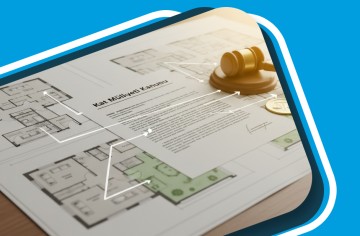
Kat mülkiyeti kanunu (Condominium Ownership Law)
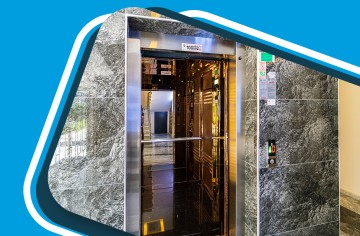
Asansör (Elevator) – What It Means in Turkish Real Estate
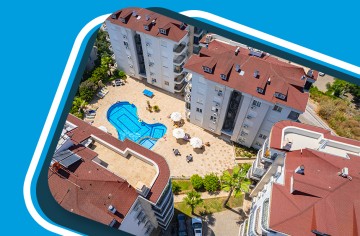
Bina (Building) – Understanding Turkish Real Estate Terms

Damga vergisi (stamp duty) in Turkey – explained for buyers
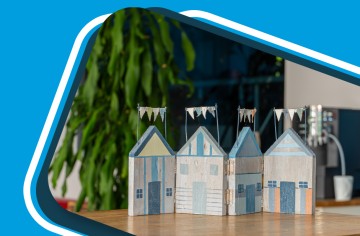
Emlak (Real Estate) in Turkey – A Simple Explanation for Foreign Buyers
